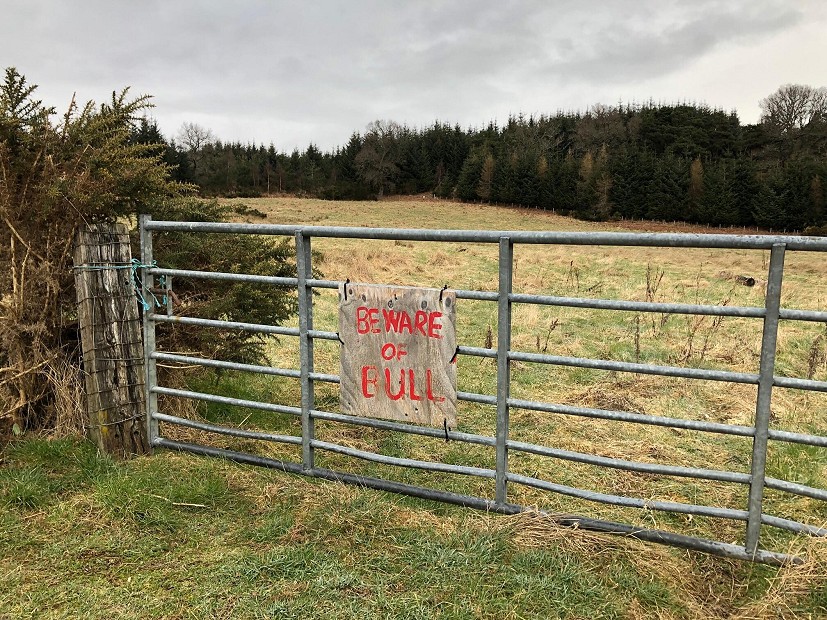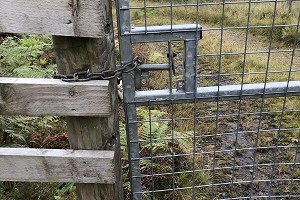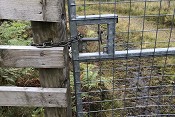
Policy decisions by both the Conservative Government and Labour opposition in recent days have put in doubt the prospect of a significant improvement to public access in England. But despite setbacks, many campaigners continue to call for a Scottish-style Right to Roam.
On Wednesday 25th October, Environment Secretary Thérèse Coffey announced, without consultation, that Defra will confirm its intention to impose a cut-off date of 2031 for 'lost paths' to be registered as legally protected public rights of way. This follows years of deadline announcements being made and then re-made.
Beyond the 2031 date, which will become law this year, no path will be able to be added to the definitive map, the official record of public highways in England. While it was previously agreed that there would be exceptions to the deadline, such as routes in use, those in urban areas, and those subject to applications to record them, a U-turn on this promise will now effectively extinguish people's rights on all unrecorded historic paths.
According to access campaigner Kate Ashbrook, General Secretary of the Open Spaces Society, the Environment Secretary has 'destroyed' a longstanding consensus for the future of public paths, achieved by a stakeholder working group (SWG) that was set up to advise government.
the environment secretary has kicked us in the teeth by picking proposals which favour landowners
The group, composed of members reflecting the interests of users, local authorities, and landowners, published a report for Natural England in 2010. Coffey has now cherry-picked from this report, said Ashbrook, abandoning recommendations opposed by landowners.
As a result the public and walking organisations will have to work at speed to claim the thousands of unrecorded routes in use before the deadline - with the risk of overwhelming the cash-strapped local authorities which must process these applications. It is inevitable that many will be missed, and that, in the years after 2031, the public will be barred from routes that have been in use in some cases for centuries.
"The group has been working for 15 years to implement this complex legislation" said Ashbrook, a member of the SWG since its inception in 2008.
"[Our report] was a balanced package, to which all had to make compromises - but now the environment secretary has kicked us in the teeth by picking proposals which favour landowners.
"SWG aimed to speed up and streamline the updating of definitive maps, and to save paths which ought not to be extinguished. Without grasping the complexity or importance of the detail, Ms Coffey has smashed our consensus.
"We shall campaign to get a proper, fair procedure put in place to save routes which are being used. Indeed, we trust that a future government will repeal the 2031 deadline. Public access has never been more vital, and our path network is the most popular means of gaining that access. This rash and prejudicial move by government will lead to the loss of thousands of public paths."
The Ramblers suggest the policy will have a big effect on the constituencies of Defra Ministers, including Coffey, in whose Suffolk constituency alone an estimated 1,918 miles of 'lost' paths are now at risk.
Jack Cornish, Head of Paths at the Ramblers said:
"We have amazing landscapes and countryside in England, and our paths help us spend time walking in nature which is fantastic for our health and wellbeing. The UK government needs to put in place a strategy, legislation and targets to provide a long-term focus and momentum in improving access to nature. Instead it is actively choosing to put at risk thousands of miles of paths, preventing more people from enjoying the outdoors. It's baffling."
The Ramblers has more than 900 volunteers working on the research required to save as many miles of lost paths as possible. They believe there is already a backlog of more than 10,000 applications waiting to be processed due to lack of planning resources.
Meanwhile walkers and access campaigners, who may have been pinning hopes of a major improvement to legislation on a change of UK Government in 2024, have been left disappointed by reports in The Guardian that the Labour Party may be working on a policy U-turn of their own.
a nationwide right to access land and water would offer a much better, cheaper and more workable model
Having previously promised to introduce a Scottish-style right to roam in England, it is understood that shadow Ministers are now seeking to backtrack on this commitment in order to respect the views of landowners. Perhaps the prospect of a Blue Wall collapse putting many previously safe rural Tory seats in play has motivated the idea of a Labour rethink.
While a new policy direction has not yet been formally announced, it is thought that Labour's upcoming election manifesto will now be most likely to mention only relatively small changes to the Countryside and Rights of Way Act (CRoW). Introduced by the last Labour Government in 2000, CRoW was warmly welcomed by the public at the time. However more than 20 years on the land it covers remains extremely patchy, and under its provision the public still has the right to access only around 8% of England.
"Piecemeal extension of the CRoW Act won't lead to equitable access for people who need it most - it's costly & time-consuming to map access land" tweeted access campaigner Guy Shrubsole.
"That's why @Right_2Roam is calling for England to copy Scotland's successful right to roam responsibly."
There have been reports today that Labour is reconsidering its position on how to extend our Right to Roam.
— Guy Shrubsole (@guyshrubsole) October 25, 2023
I spoke to @TimesRadio earlier about how amending England's CRoW Act could be tricky, & how adopting a Scottish-style right to roam would be more effective - & popular: pic.twitter.com/wiNjAuQvww
CRoW was tricky to implement, point out campaigners, and is still poorly understood.
"[CRoW] areas were mapped at a considerable cost and yet the maps today showing where the public have a freedom to roam have not been updated in England since 2000" explains Cath Flitcroft of the BMC.
"There were inconsistencies in the way land types were mapped, errors were made, and in some places, 'islands' of inaccessible open access land now exist. The legislation also remains poorly understood by the wider public. Extending CROW to other areas risks expanding the patchwork of accessible landscapes, exacerbating confusion and strengthening the idea of 'trespassing in' and 'keeping out' of those areas between."
The BMC believes that a nationwide right to access land and water would offer a "much better, cheaper and more workable model".
In a recent survey of members, 90% of respondents supported the Right to Roam approach, with only 6% opposing and 4% remaining undecided. The majority of respondents were also supportive of access to the natural environment being governed by an access code, as per the largely uncontroversial and smooth-functioning regime in Scotland.
"Labour, the party whose Clarion Clubs campaigned for the countryside rights of cyclists and ramblers in the early 20th century, should be at the forefront of this new mission" opined the Guardian in an editorial today.
"There is still time to U-turn on its U-turn."




















































Comments
Experienced this yesterday when asked to leave when walking along on a fenced concrete farm track miles from the actual farm. So no RTR here in Devon!
Much as I'd love to see English access laws move closer to the Scottish approach, if Labour do conclude that it isn't high enough up the priority list to be a sensible addition to their next manifesto, I wouldn't be too dismayed. A genuinely significant change would clearly be a big piece of work for any government to take on, with lots of careful thought required, lots of stakeholders to be consulted and lots of political capital spent. The scale of problems for Labour to fix in the next Parliament is astonishing, and despite a personal bias towards access changes that might benefit me, I think a lot of those problems realistically have to be considered more urgent and more important.
Sadly, I'm inclined to agree with you. The Tories seem to have ruined the country over the past 13 years far more effectively than they ever have done before
I think they are in danger of removing all of the policies that make people want to vote for them and relying on people voting against the Tories.
Living in a somewhat marginal seat I will still vote for them as it's either labour or a Tory who has never once broken the whip and has had nothing to say about government dithering on selecting an SMR design (which has potential to contribute to both energy/ environment and levelling up policy briefs) rather than championing the one which is based in her own city (I think it is in an adjacent constituency by half a mile or so).
Yeah, I do actually share that concern more generally, though I probably shouldn't go into it too much for fear of derailing the thread entirely with the standard argument about the merits or otherwise of an entirely centre ground platform. But on the particular topic of access, my agreement with the decision would depend on the reasoning behind it.
If the argument for ditching the access policy is, "sounds a bit radical, better not scare anyone off" or "it's the wrong path to take, CROW was enough", then I disagree. But if it is about making best use of the limited time available to parliament and ministers to focus on what's most urgent and important, I find that much harder to argue with. To me, wholesale changes to access legislation seem like a thing to spend time on when the country is already basically heading in a good direction, with a sound economy and functional public services. We're certainly not there.